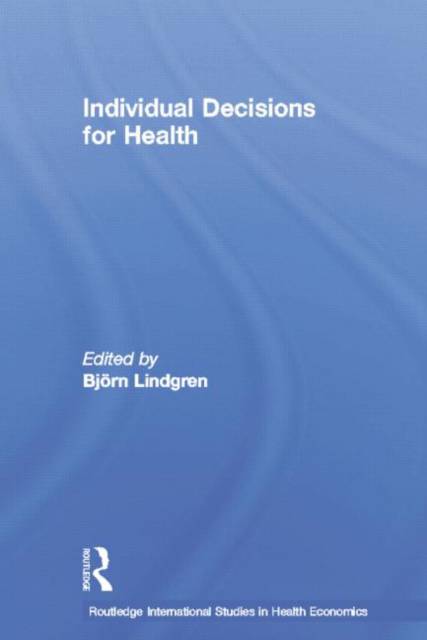
- Afhalen na 1 uur in een winkel met voorraad
- Gratis thuislevering in België vanaf € 30
- Ruim aanbod met 7 miljoen producten
- Afhalen na 1 uur in een winkel met voorraad
- Gratis thuislevering in België vanaf € 30
- Ruim aanbod met 7 miljoen producten
Zoeken
Individual Decisions for Health
€ 45,95
+ 91 punten
Omschrijving
Although economics is a relative newcomer to research into the determinants of good health, its significance should not be under-estimated. This book poses the important question of whether economic theory can be developed to explain why people engage in activities that are obviously a danger to their long-term health. In looking first at the individual's own decisions that affect his or her health, and then at the impact of other agent's decisions for the individual's health, the authors provide an exhaustive account of the important issues to be faced to ensure the best future for public health care. Contributors include such experts as Peter Zweifel, Donald S. Kenkel and Mark Pauly. Of great interest to advanced students of health economics, this book will also be extremely useful to students, academics and professionals involved in the sphere of public health.
Specificaties
Betrokkenen
- Uitgeverij:
Inhoud
- Aantal bladzijden:
- 614
- Taal:
- Engels
- Reeks:
Eigenschappen
- Productcode (EAN):
- 9780415753746
- Verschijningsdatum:
- 3/04/2014
- Uitvoering:
- Paperback
- Formaat:
- Trade paperback (VS)
- Afmetingen:
- 178 mm x 254 mm
- Gewicht:
- 407 g

Alleen bij Standaard Boekhandel
+ 91 punten op je klantenkaart van Standaard Boekhandel
Beoordelingen
We publiceren alleen reviews die voldoen aan de voorwaarden voor reviews. Bekijk onze voorwaarden voor reviews.











